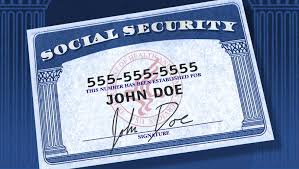9 Factors That Impact the Size of Your Social Security Check


How much money will be in your Social Security retirement check and how much can you keep? For retirees, these are burning questions.
Even retirees who continue to work may count heavily on this long-anticipated monthly benefit.
Here we take a look at the deciding factors behind the size of your check and how much goes into your purse or pocket.
1. Your work history

Your “retirement age” means something quite specific to Social Security. You can stop working and throw all the retirement parties you want, but as far as Social Security is concerned, your retirement age is not when you quit work but when you start taking Social Security benefits.
To calculate the size of your monthly benefit check, the Social Security Administration (SSA) uses a formula that takes into account:
- Your 35 highest-earning years
- When you start receiving Social Security benefits
The SSA explains more at “Your Retirement Age and When You Stop Working.”
2. Your earning history

The size of your Social Security checks also depends on the amount you earned in each of those 35 top-earning years.
The formula measures earnings, not work. So, maybe you worked at home, rearing children or caring for elders. Without earnings for those years, you are at a disadvantage.
When you don’t have 35 years’ worth of earnings, Social Security assigns a $0 value for each non-earning year. The $0 years lower your benefit amount, so it’s in your favor to have earnings in as many of those 35 years as possible.
Working more than 35 years can’t hurt this calculation. In fact, you can grow your monthly retirement check if:
- You add earning years to replace zero-earning years
- You replace lower-income years with higher-earning years
The SSA has details at “Social Security Benefit Amounts.”
3. When you were born

Your birth year is an important milestone for Social Security. The year of your birth determines your “full retirement age,” which is a benchmark for your benefits set by the Social Security Administration.
For those born between 1943 and 1954, full retirement age is 66.
To keep Social Security financially strong, Congress in 1983 took steps to gradually raise the full retirement age. As a result, if you were born in 1960 or later, your full retirement age is 67. If you were born between 1954 and 1960, you can see find your full retirement age in this SSA chart.
4. Your age when you claim

Social Security allows retirees to claim benefits and receive retirement checks as soon as they turn 62.
But you can’t earn the full amount you are due at that time; you must wait until your full retirement age. Claiming sooner lowers your monthly benefit amount — permanently.
If you wait even longer than your full retirement age, you can supersize your Social Security benefit. This is also permanent.
The SSA’s chart of “Delayed Retirement Credits” has details. Generally, you add to your monthly benefit for each month you hold off claiming until age 70.
The most your monthly benefit can grow is 8%; you’ll get that by waiting for your 70th birthday before claiming benefits. There’s no point in waiting longer; the increases stop at that age.
5. A spouse who worked

You may be able to get more from Social Security than your work record entitles you to. How? By claiming a “spousal benefit.”
If your spouse out-earned you (and is receiving benefits), you might be eligible for a higher payout — up to half of your spouse’s “primary insurance amount,” depending on what age she or he claimed Social Security.
Usually, you must be at least 62 to do this. The benefit increases if you wait until full retirement age.
Spousal benefits may be available in some cases if you have a child under age 16 or who receives SSI disability payments.
There are restrictions and requirements. Learn more about Social Security benefits for spouses.
6. The state of the economy

Once you are receiving Social Security checks, your monthly benefit is typically fixed.
But inflation hurts people on fixed incomes, so Social Security law endeavors to compensate with automatic cost-of-living (COLA) adjustments — percentage boosts to the monthly benefit.
These COLAs are based on the national rate of inflation. When inflation is flat, the annual COLA is minuscule — or sometimes 0%. These days, with inflation higher, COLA increases are growing larger.
Scroll down on this page to view Social Security COLAs since 1975.
7. Whether you keep working

Working provides an exception to the rule of thumb that Social Security payments are fixed after you claim benefits.
Working after you start collecting benefits can grow your Social Security payment. Your benefit formula is recalculated once yearly to include your new earnings.
“If your latest year of earnings is one of your highest years, we recalculate your benefit and pay you any increase you are due,” the SSA says. That’s because, with each year of higher earnings, Social Security replaces a lower-earning year in the formula.
There is a “but,” however. If you are younger than full retirement age, you could end up temporarily lowering your benefit if you earn too much at work.
When you hit full retirement age the penalty ends, and your benefit amount is adjusted to compensate you for the period benefits were withheld.
This retirement earnings calculator lets you test scenarios. The SSA’s “Receiving Benefits While Working” explains more and gives examples.
8. Whether you have other income

Do you have to pay tax on your Social Security retirement income? Maybe.
If your income is under $25,000 for a single filer or under $32,000 for a couple filing jointly, you’ll pay no federal income tax on your benefit checks, as the SSA explains here.
Otherwise, your benefit is taxed — on up to 50% or 85% of the total amount. How much tax you pay depends on how you file federal taxes and on your income from other sources.
9. Where you live

The IRS isn’t alone in wanting a piece of your benefit check. If you live in one of the 12 states that tax Social Security benefits, you may owe state income tax on your benefit check, too.
The rules vary. Some states follow the federal rules on taxing Social Security. Others have their own approaches, says this AARP roundup of states’ rules.
Disclosure: The information you read here is always objective. However, we sometimes receive compensation when you click links within our stories.
Source link





